Is your pup’s bum spewing diarrhea every time you take them outside to do their business? As gross as it sounds, it’s normal for canines to have watery stools at one point or another. But just because it’s natural doesn’t mean you should ignore it.
Your furry friend’s bowel movements can give you some insight into their health. Most of the time, doggy diarrhea isn’t anything to be worried about. But it’s a good idea to read up on the causes of their chocolatey chaos so that you can help them start pooping normally again.
At a Glance
- Most dogs will poo one to three times a day. If your dog has diarrhea, they will defecate more often and their stool will be loose and watery.
- Symptoms of dog diarrhea include unformed watery stools, frequent pooping, changes in appetite, and dehydration.
- Common causes of diarrhea in dogs can include sudden diet changes, food allergies or intolerances, and bacterial infections.
Keep reading to learn more!
See Related: Why Does My Dog Follow Me Everywhere? 10 Reasons Why
What is Dog Diarrhea?
The amount and frequency of your pet’s poop can vary. Diet, activity level, health, and age can all play a role in their stool schedule. Most canines will defecate one to three times a day. Puppies might poo more, sometimes even up to five times a day.
The size of doggy stool will be directly proportional to their size and diet. The poops of a teacup Yorkie will be minuscule compared to that of an Alaskan Malamute!
If your canine companion is pooping way more than normal, and those poos have an abnormal consistency, they might have diarrhea. Dog diarrhea is loose and watery, and the color or smell might also be different than usual.
Chronic Diarrhea and Acute Diarrhea
Acute diarrhea usually lasts between one to 14 days, while chronic diarrhea in dogs lasts upwards of two weeks. If your dog’s diluted doo doesn’t seem to go away, it’s a good idea to take them to your vet to help determine the underlying cause.
Additionally, doggy diarrhea can be hard to control. Even if your pup is fully potty trained, they might have an issue holding it in. It’s a good idea to scoop the poo from your lawn ASAP so that they always have a fresh place to relieve themselves. Feces-free grass will make your morning strolls much more enjoyable for you and your pooch!
Signs & Symptoms of Diarrhea in Dogs
You probably don’t want to spend your afternoon studying the fecal matter of your beloved pet. But keeping an eye on your pup’s poos can give you some valuable insight into their health and wellness.
So, what are the signs of dog diarrhea?
Keep an eye out for any of the following symptoms:
- Unformed, watery stools
- Frequent pooping
- Loss of appetite
- Lethargy
- Dehydration
- General changes in behavior
However, just identifying diarrhea in dogs is only part of this stinky process. It’s a good idea to know what’s causing these changes to your dog’s bowel movements.
Causes of Dog Diarrhea
It can be hard to pinpoint the precise cause of your dog’s diarrhea. There are likely a few different reasons.
So, let’s review a few of the most common causes of diarrhea in dogs.
#1. Sudden Changes to Your Pup’s Diet
The foods your pooch eats will play a huge role in their pooping habits. After all, what goes in must come out!
It might take time for your pup’s body to adjust to a new dog food brand or ingredient. Your dog’s digestive system and intestines will need to get used to any changes in diet. Even a minor change to your dog’s diet can lead to a massive difference in their bowel movements.
It’s recommended that you go slow when introducing your pup to a new food or ingredient. You can start by mixing their current chow with the new kind.
Dietary indiscretion could be another reason for your dog’s stinky feces. If you regularly feed your pup junk food or garbage, it can affect their BMs. There’s even a name for it in the veterinary world – “garbage gut.”
#2. They Might Have an Allergy or Food Intolerance
Like humans, some dogs have food allergies. Allergies happen when your dog’s immune system is sensitive to certain ingredients.
Food intolerance means your pup’s stomach might not be able to handle certain foods. Both of these things can irritate your dog’s stomach and gastrointestinal tract and lead to diarrhea in dogs.
If you think food allergies or intolerances are behind your dog’s diarrhea, stick to a bland diet for a few days. Slowly introduce foods your dog might be sensitive to so that you can pin down the culprit!
#3. Bacterial or Viral Infections
Most of the time, your dog’s watery diarrhea is the result of them eating spoiled food off the ground or cat feces. It’s often nothing to worry about, and it will likely go away on its own in due time. However, that doesn’t mean you should ignore these fickle feces.
Bacterial infections can disrupt your dog’s normal gut flora. This can lead to an upset stomach or watery BMs. Viral infections or parasitic infections can also affect your dog’s stool.
#4. Diarrhea in Dogs Can Be a Sign of a Health Condition
Diarrhea in dogs is exceptionally common. It can be caused by anything from mild intestinal distress to inflammatory bowel disease.
Though uncommon, chronic diarrhea (or other behaviors, like excessive panting or shaking) can be a sign of something more serious. Inflammatory bowel disease is a condition that occurs when the intestinal tract is inflamed. Anything from parasites to toxic materials can cause this.
There are other medical conditions that can lead to loose stools in dogs. Kidney disease, liver disease, and pancreatitis are all associated with doggy diarrhea. Even medications prescribed by your vet for your furry friend can cause diarrhea as a side effect. (As a side note, be sure to never give your dog human medications.)
#5. There Might Be an Internal Blockage
Dogs will be dogs. And sometimes that means they’ll eat foreign objects even if they have no clue what they’re about to swallow. A painful blockage like that is a very serious health issue, and you should take your pup to the nearest emergency animal hospital right away.
These kinds of objects that your dog can’t digest can irritate their stomach and create a blockage in the gastrointestinal tract. If your dog has ingested a toy or other object, it can lead to diarrhea.
#6. Your Dog is Stressed Out
There are some emotional causes of diarrhea. Stress is a common reason why canines might experience sudden diarrhea.
In humans and dogs alike, stress will lead to the release of hormones in the body. Cortisol, a stress hormone, can disrupt the gastrointestinal system and throw off the body’s natural balance.
Anything from Fourth of July fireworks to a new apartment can trigger stress in your dog. When this happens, your dog’s doo might become watery, loose, and more frequent.
If your pup has been pooping more than usual, now would be a good time to book a dog waste management company!
#7. Other Causes of Diarrhea in Dogs
Here are some other potential causes for your dog’s diarrhea:
- Hormonal imbalance
- Vigorous exercise
- Parasites
How to Treat Diarrhea in Dogs
If your dog has diarrhea, you should always visit your vet first. This post doesn’t constitute medical advice, and it’s a good idea to get an expert opinion so you can rule out any serious health issues.
Here are some tips and tricks for treating diarrhea in dogs:
- Never give your pooch human medications. Over-the-counter medications that might work for humans can be toxic for canines.
- Feed your dog a bland diet. This helps calm their stomach and intestines. Plain-cooked white rice and boiled chicken is a great option. Canned plain pumpkin (not pumpkin pie filling) can help your furry friend’s system “flow” a bit better. You can also try giving them natural yogurt, peeled boiled potatoes, or specially formulated dog foods.
- Withhold food for a few hours. If your dog has one or two runny stools, let them recover by fasting for 12 to 24 hours. Contact your vet if they have two or more bouts of diarrhea.
Bonus: Excessive Panting In Dogs, And What It Means
Final Thoughts
Though doggy diarrhea is pretty gross, it’s something you shouldn’t ignore. Be sure to contact your vet and do what you can to help your furry friend feel better!
Keep Reading: Dog Walking 101: How Often Should You Walk Your Dog?
—
Scoop Masters offers professional dog waste removal services in California, Texas, Florida, and Tennessee. Since 1988, we’ve saved dog owners across the country from the overly unpleasant task of picking up after their pets. Each poopy project we complete gives them the freedom, convenience, and sanitation they deserve! Contact us for a free quote, or simply stock up on enough dog poop bags to keep your pet’s number twos at bay. To stay in the loop, follow up on Facebook and Twitter/X. If your dog can poop it, we can scoop it!

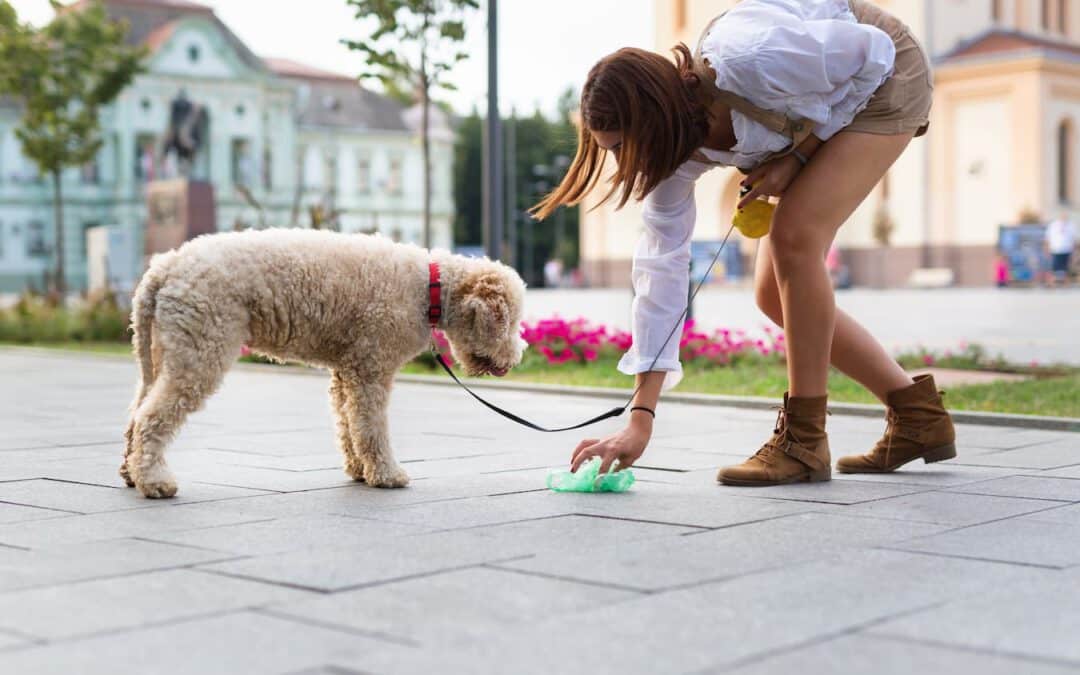
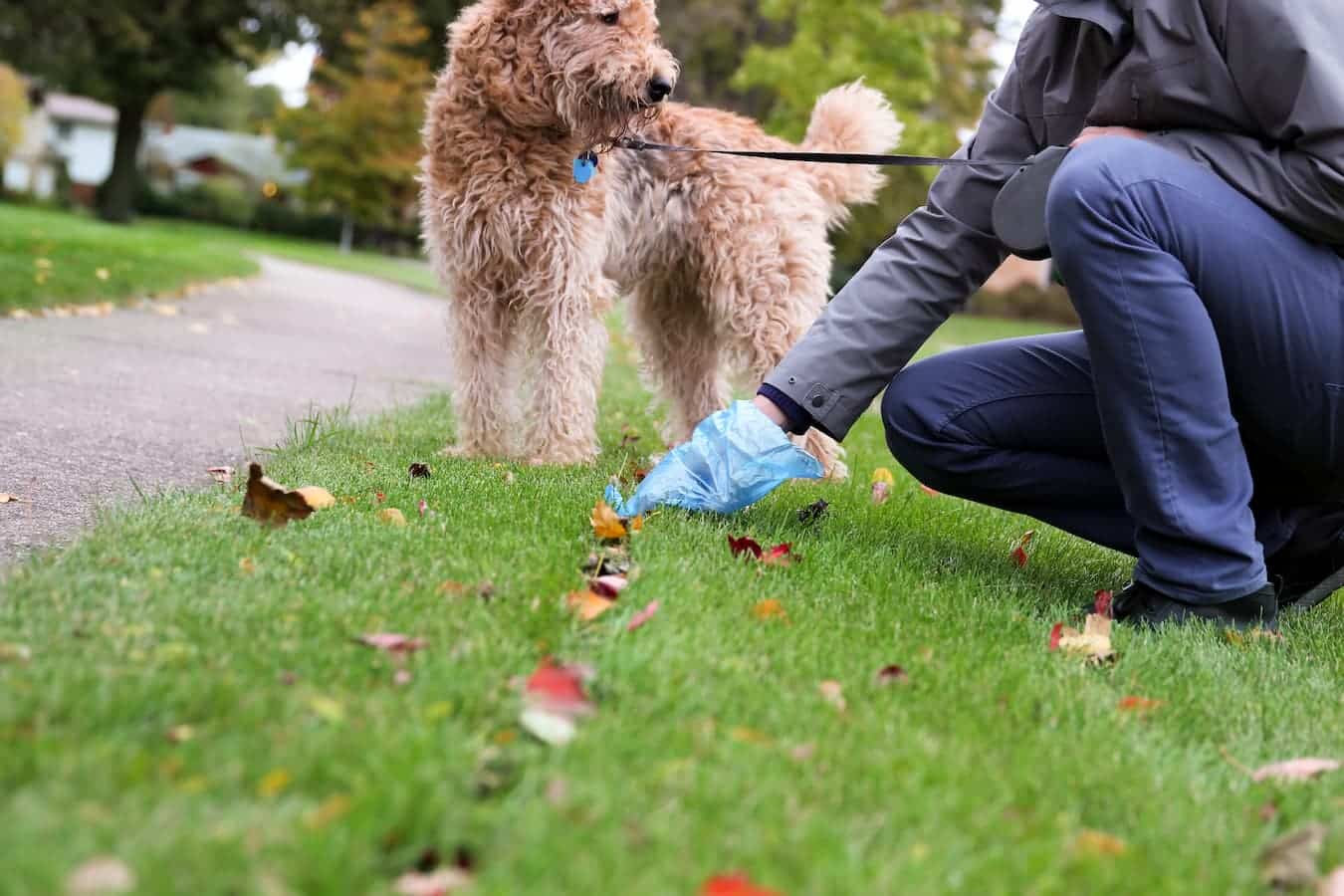
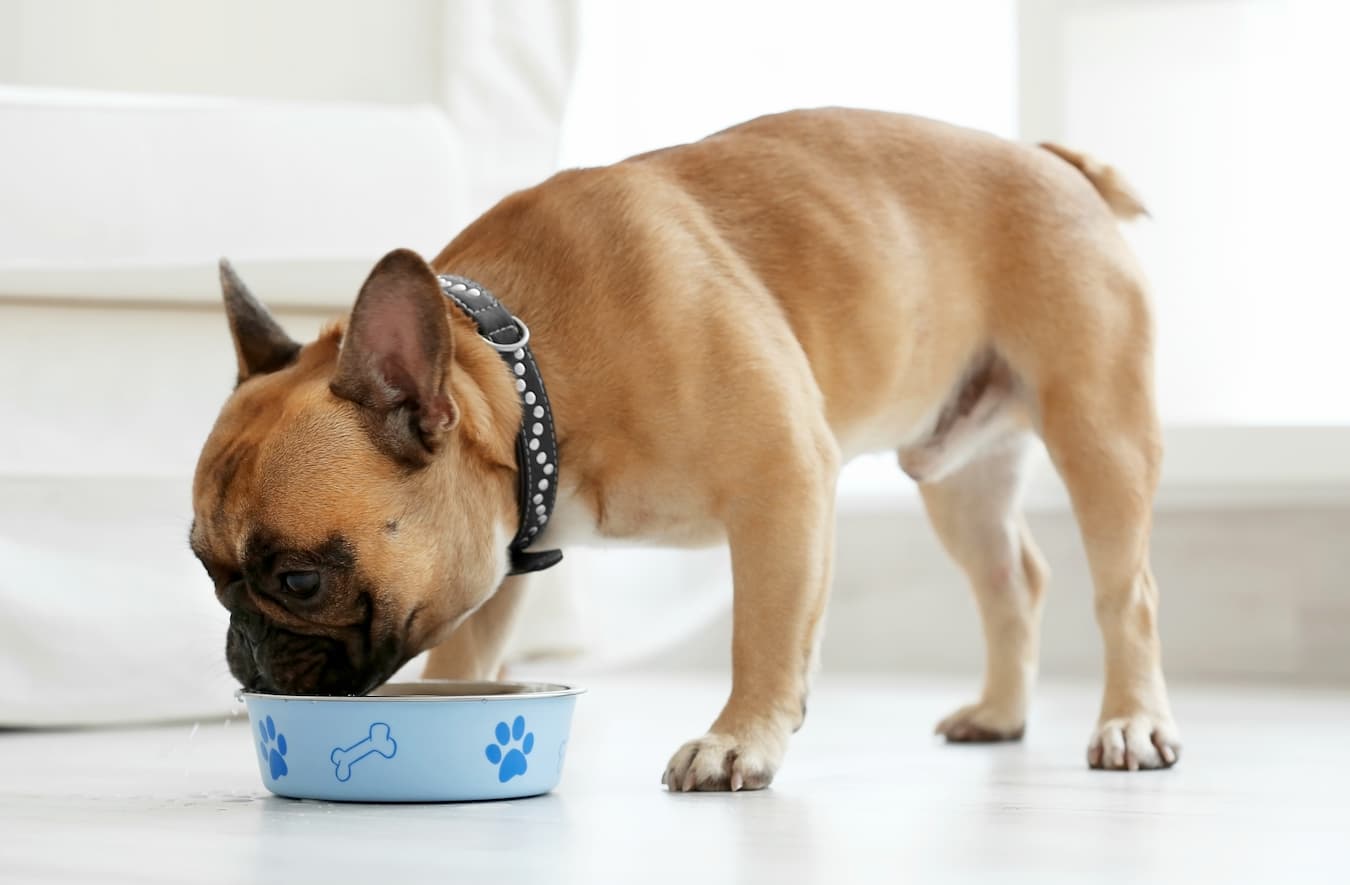
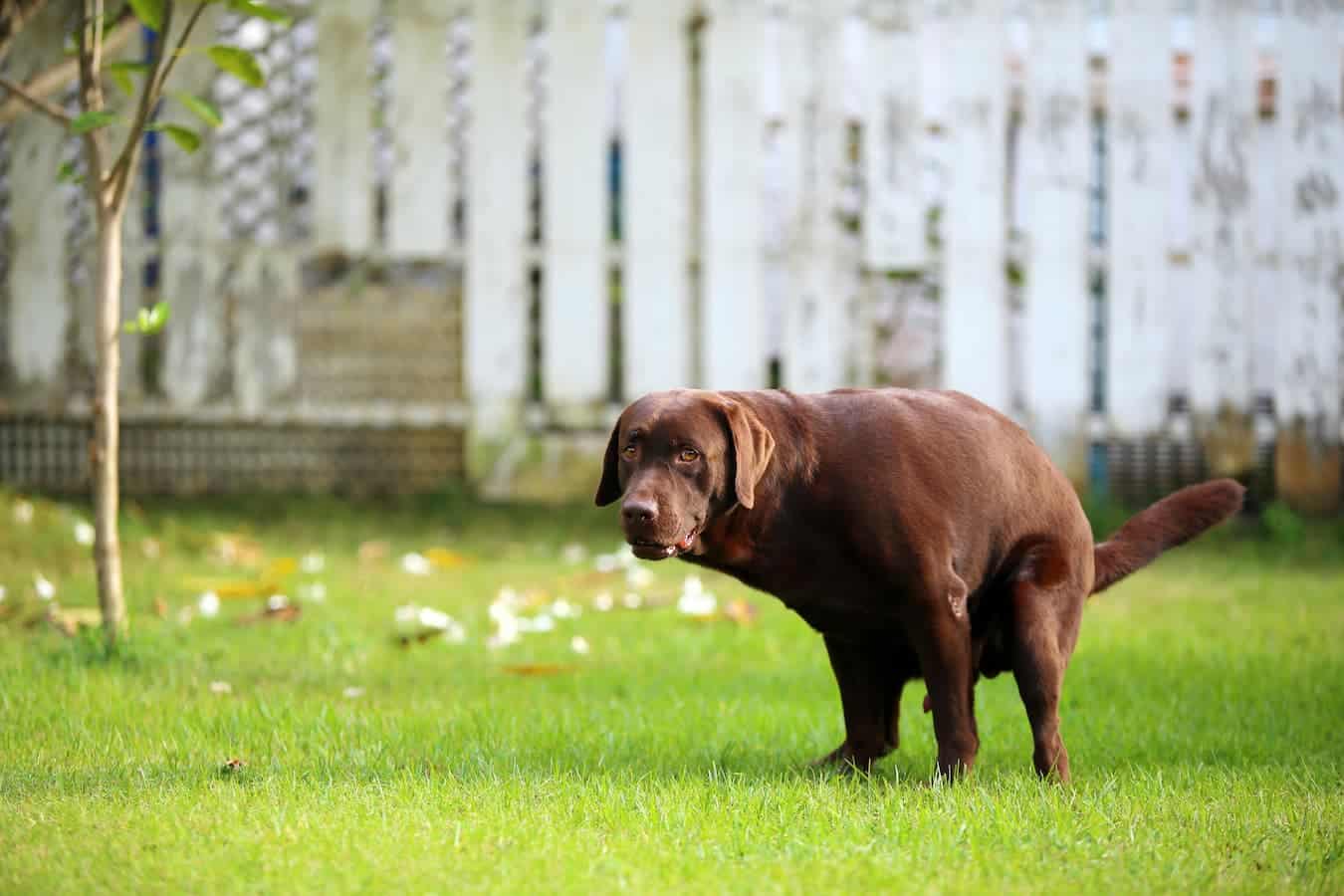
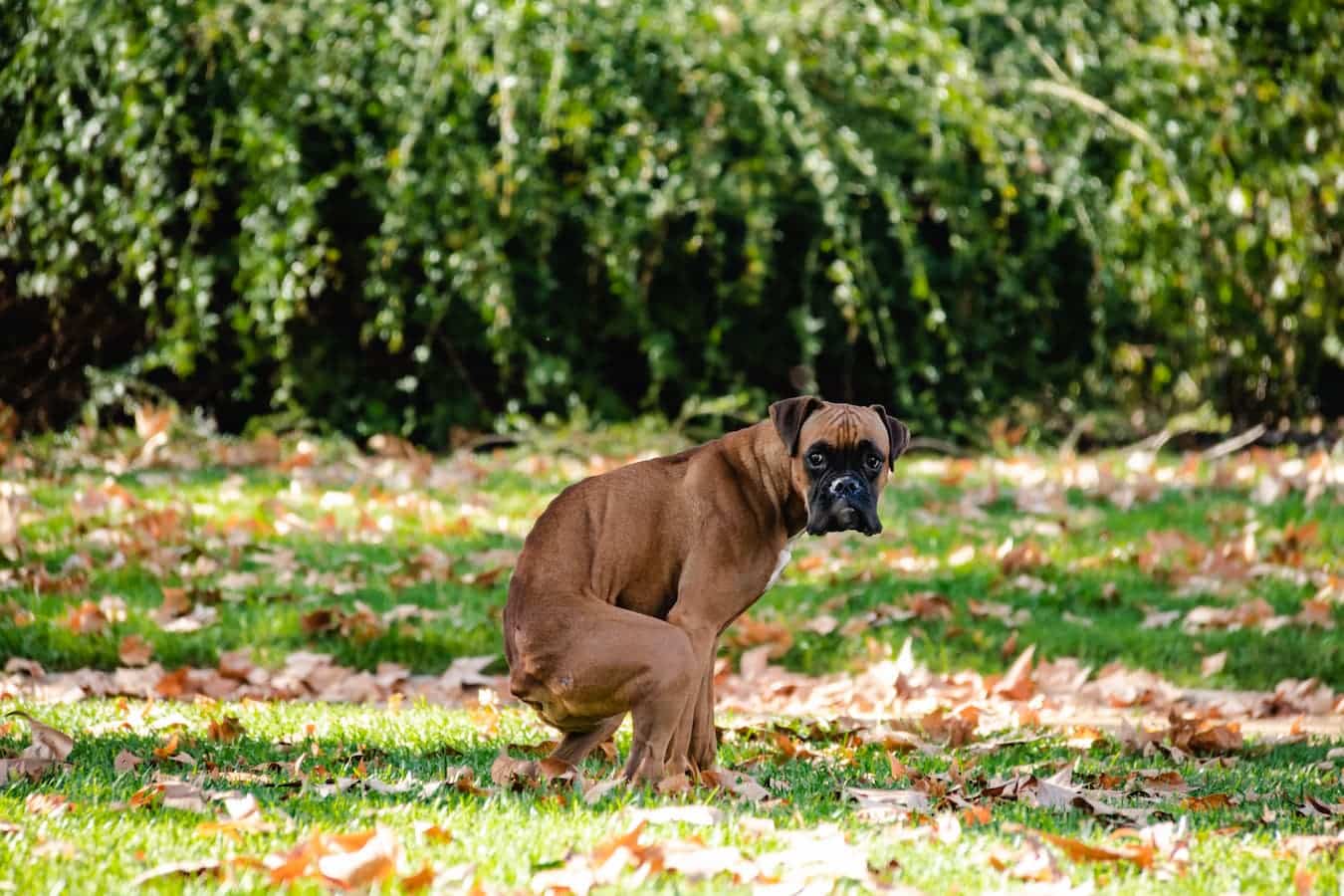
Trackbacks/Pingbacks